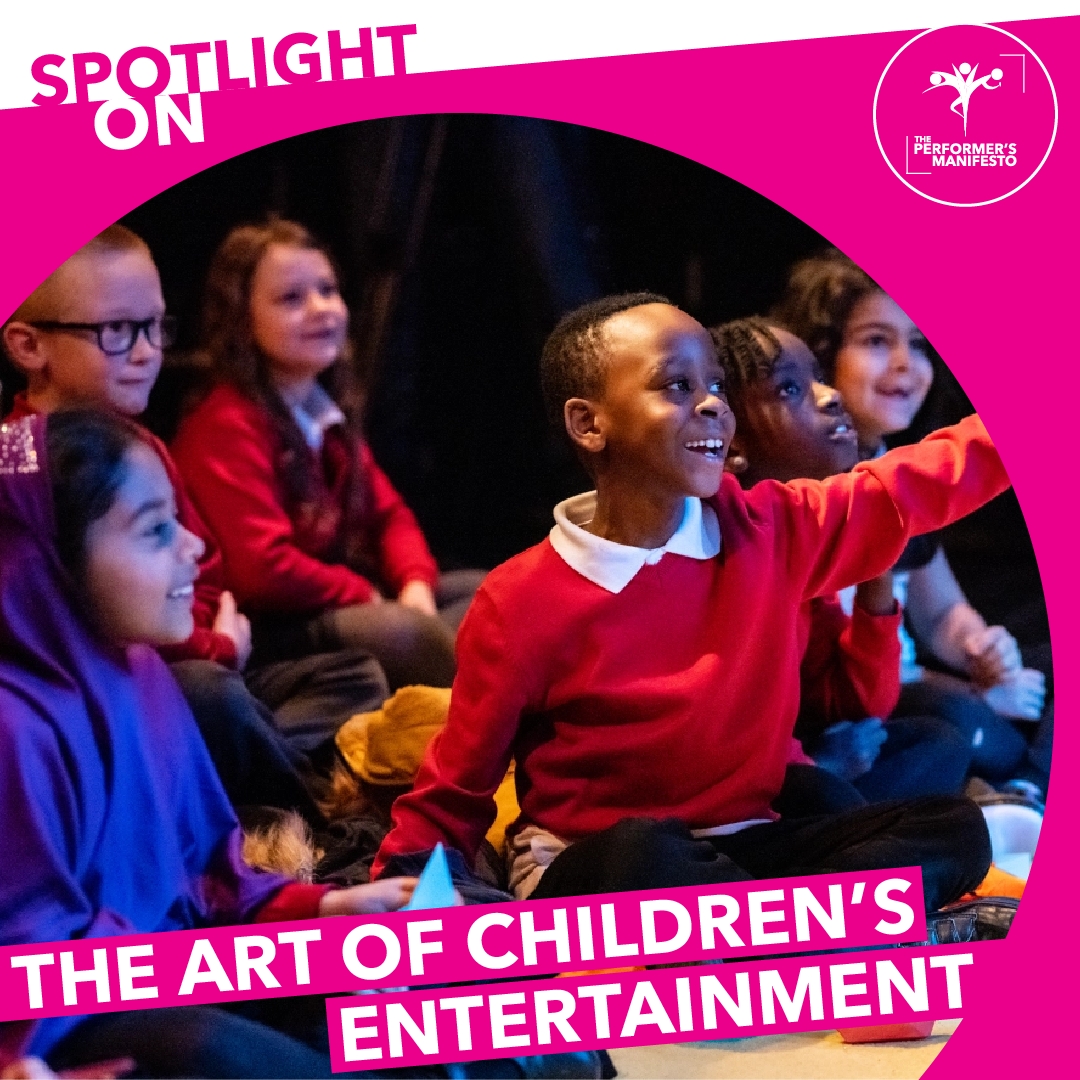This #SpotlightSaturday, we’re shining the light on an often under-appreciated yet incredibly important facet of the performing arts industry: children’s entertainment. Whether it’s entertaining at shopping malls, theme parks, cruise ships, or private parties, children’s entertainers play a crucial role in the industry. Not only do they bring joy to young audiences, but they also hone vital skills that serve them throughout their careers. Let’s dive into the wonderful world of children’s entertainment and celebrate the performers who make it magical!
The Diversity of Children’s Entertainment
Children’s entertainment comes in many forms, offering diverse opportunities for performers to showcase their talents:
Shopping Mall Shows: During holiday seasons and special events, shopping malls often host interactive performances. These shows require engaging storytelling and high-energy acts to captivate young shoppers and their families.
Theme Parks: From daily shows and parades to character meet-and-greets, theme parks are a treasure trove of opportunities. Performers here develop stamina and versatility, playing beloved characters and bringing stories to life multiple times a day.
Cruise Ships: Family-friendly performances and themed activities are a staple on cruise ships. Entertainers need to be adaptable and ready to deliver top-notch performances amidst the ever-changing sea environment.
Birthday Parties and Private Events: Personalized performances for special occasions demand creativity and a personal touch. Whether it’s a superhero, princess, or clown, making a child’s day memorable is a rewarding experience.
Educational Shows: Schools, libraries, and museums often host educational performances. These gigs require a blend of entertainment and education, helping children learn through fun and engaging shows.
The Essential Skills of a Children’s Entertainer
Being a children’s entertainer is no easy feat. It requires a unique set of skills to truly connect with young audiences:
Engagement: Capturing and holding the attention of children is an art. Techniques like interactive storytelling, music, and physical comedy are essential tools in an entertainer’s toolkit.
Adaptability: Young audiences can be unpredictable. A successful children’s entertainer needs to be quick on their feet, adjusting performances based on the audience’s reactions and energy levels.
Authenticity: Children are astute and can easily sense insincerity. Authenticity and genuine enthusiasm are crucial. Playing down to children can backfire; instead, respecting their intelligence and engaging them with genuine performances creates a lasting impact.
Versatility: From singing and dancing to balloon twisting and magic tricks, a versatile skill set keeps performances fresh and exciting. The more skills an entertainer has, the more engaging their shows will be.
The Benefits of Working in Children’s Entertainment
Working in children’s entertainment is not just fun; it’s also incredibly beneficial for performers’ careers:
Skill Development: Performing for children builds confidence, improvisational skills, and audience engagement techniques that are transferable to all types of performances.
Networking Opportunities: These gigs often lead to connections with other performers, event planners, and industry professionals, opening doors to future opportunities.
Financial Stability: Children’s entertainment can provide a steady income stream, particularly during slow periods in other performance areas. Moreover, children’s entertainment is somewhat “recession-proof.” Even in hard economic times, parents often prioritize spending on their children, ensuring a constant demand for quality entertainment.
Growth Opportunities: Performing for children offers a chance to learn about production, event management, and to create a portfolio of diverse experiences.
Success Stories
Many performers have started their careers in children’s entertainment and have gone on to achieve great success. Some even make children’s entertainment their primary gig, such as The Wiggles, who have become household names by entertaining and educating young audiences around the world.
Tips for Aspiring Children’s Entertainers
Training and Workshops: Consider taking classes or workshops focused on children’s entertainment skills. Learning from seasoned professionals can provide valuable insights and techniques.
Costuming and Character Development: Creating engaging and appropriate characters is key. Invest time in developing costumes and personas that children will love and remember.
Marketing Yourself: Promote your services through social media, build a strong portfolio, and network with event planners. Word of mouth and online presence are powerful tools for booking gigs.
Children’s entertainers play a vital role in the performing arts industry. These performers bring joy to young audiences while honing their craft and building essential skills. Whether you’re just starting out or looking for new opportunities, children’s entertainment offers a rewarding and dynamic career path. Embrace it with authenticity and enthusiasm, and you’ll find it’s not only a great way to break into the professional scene but also an incredibly fulfilling career choice.
Let’s celebrate the magic that children’s entertainers bring to the world and acknowledge the hard work and dedication they put into their craft. Have you worked as a children’s entertainer? Share your experiences and tips in the comments or on social media!


